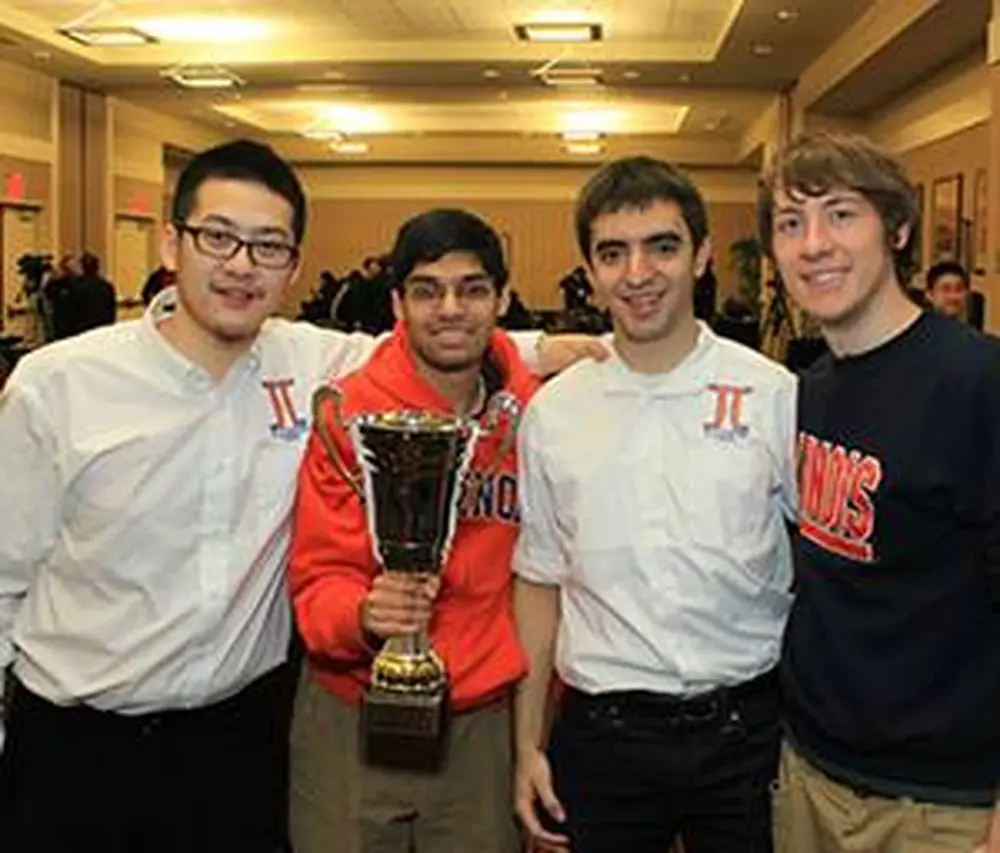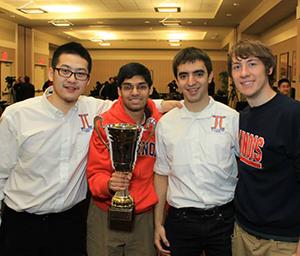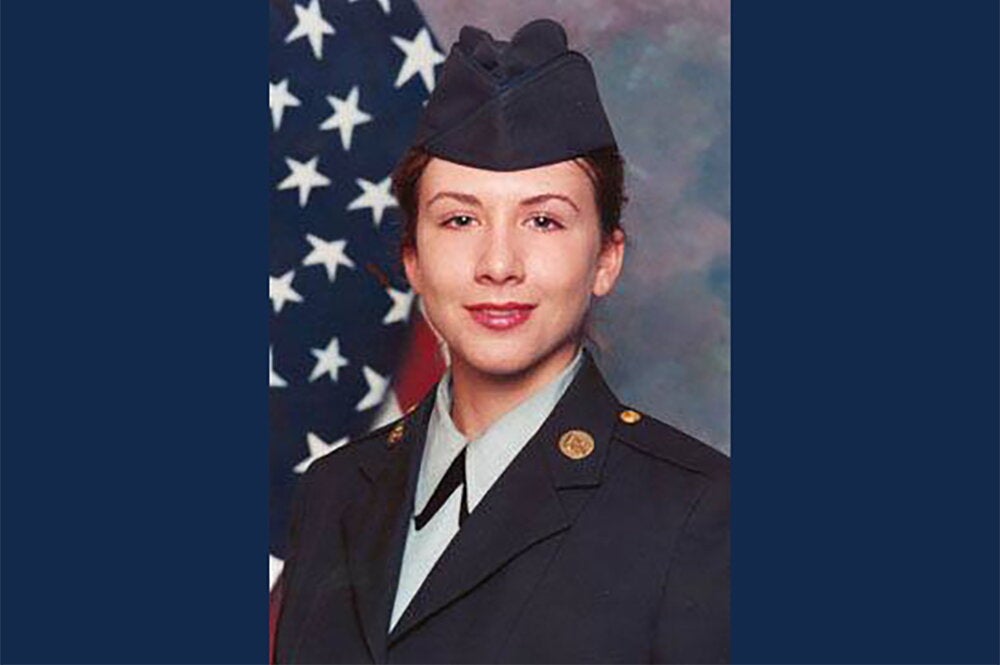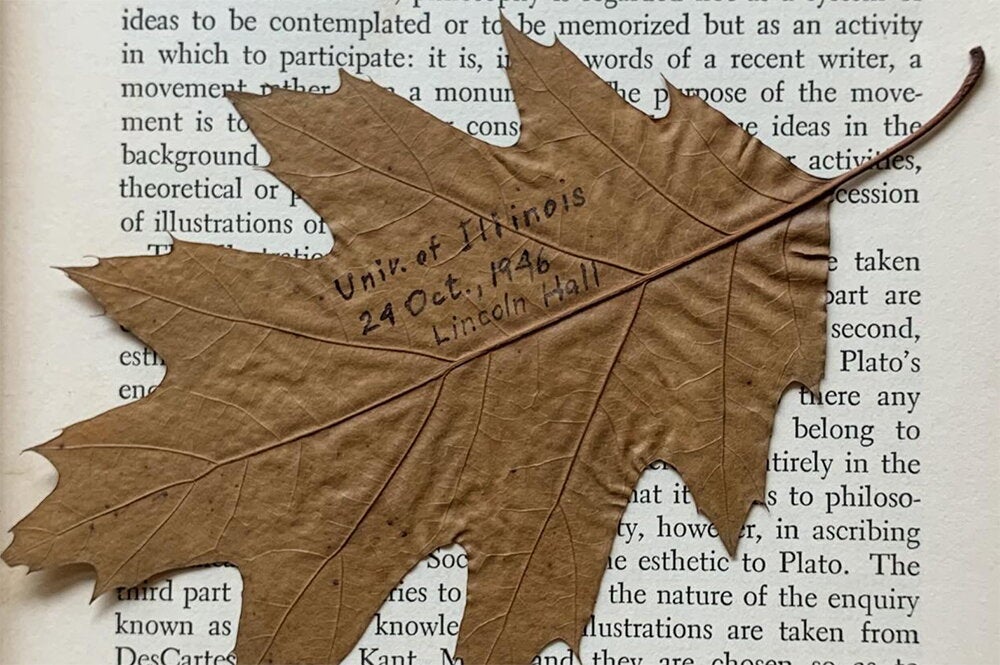

If you can’t resist an underdog story, look no further than the Illini Chess Club. With no coaches, scholarships, or grand masters—trademarks of today’s powerhouse university chess teams—the club is sending a team to the national “Final Four” tournament for the second year in a row.
The team of four LAS students will play in the President’s Cup in Manhattan in April, after they placed third at the Pan American Intercollegiate Team Chess Championship in December. They did so by upsetting teams from Texas Tech, Columbia University, and Lindenwood University, all with ratings of 200 or more points higher than the Illini.
Prior to last year, Illinois hadn’t sent a team to the Final Four since 1991.
“It’s the team chemistry that we have,” says Michael Auger, a junior in communication and team president, in explaining the victories that have intrigued the chess world (the moves of one team member, Eric Rosen, at the Pan American tournament were published in the New York Times). “We’re very much playing as a team. And I think we all care a lot, and I think that’s really big for us.”
Auger and Rosen, a sophomore in mathematics and computer science, have known each other since they grew up near Chicago. They shared the same chess coach and went to the same chess tournaments, and each were considered to be among the country’s top youth players. Likewise, each turned down chess scholarships at other schools to attend the University of Illinois (which offers no chess scholarships).
The team’s fortunes received a serendipitous boost in early fall 2013, during a Quad Day promotion to attract new players to the club. They offered $5 to anyone who could beat them, and one of the passersby who took up the challenge was Xin Luo, now a junior in mathematics and economics. Luo, a native of China, was one of the country’s top youth players—a National Rapid Chess Champion at age 10—before his studies took him away from the game. He figured he was about to make an easy $5—but Auger beat him.
“Being mad for that, I decided to go to chess club and try to find out all the good players in the club,” Luo recalls. He’s been playing with them ever since.
Contrary to the others, Akshay Indusekar, a junior in economics from Naperville, Ill., was no child champion—he didn’t even play chess competitively until he was a sophomore in high school, when he tried out for his high school’s chess club out of curiosity. He made the eight-person team, but he was the weakest member.
“I could not stand being the worst player on the team and that inspired me to work hard and become a better player,” Indusekar recalls. “Eventually I became the best player on my high school team.”
When he arrived at Illinois, he joined the chess club again, only to find himself on the “B” team when the “A” team went to the President’s Cup in 2013. Dismayed but motivated after missing the cut, he worked harder on his game, improved, and in 2013 he made the club’s “A” team. He will be headed to Manhattan in April.
The team figures to once again be underdogs in April (they placed fourth last year), but this time they have hired a temporary coach who they hope will help them “shake things up a little bit,” Auger says, when they hit the chess boards in Manhattan. They’re hoping that the experience of last year’s President’s Cup will help them this year, he adds.
The team is trying to raise $9,500 for its trip to the President’s Cup, and their success has generated enough interest that they’ve already collected more than $4,000 toward their goal.
Until then, you can be sure to find them practicing their game. The chess club meets on Sundays and Wednesdays, with practice scheduled to last two to three hours each day. Of course, they end up playing a lot longer than you expect.


